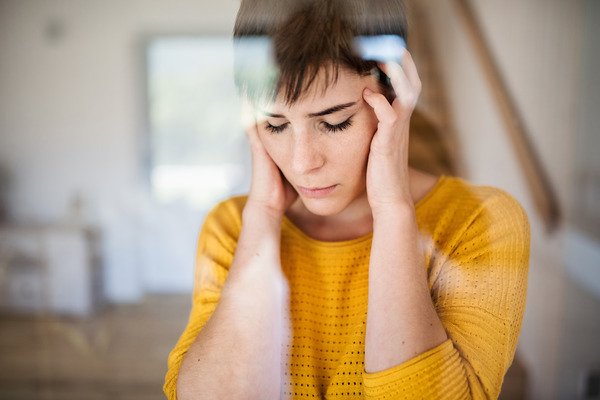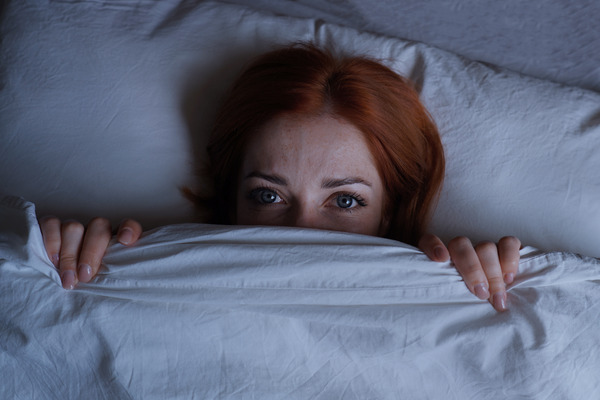What signs may indicate that we are facing a relapse of depression? Discover some signs and how we can deal with this situation.
Depression is a mental health problem that affects a person’s ability to cope with everyday challenges. If you have experienced depression in the past, it is normal to be worried about the possibility of a relapse. When we talk about a relapse into depression, this is a return in the severity of symptoms after a remission has been achieved. But how can we know what the signs of this are?
What is depression relapse?
The depression relapse It is a period of at least two weeks during which symptoms of depression have returned, even though you are in treatment and have seen improvements. Typically, relapses are triggered by one or more identifiable stressors. In addition, there is research that supports some ways to prevent relapses and that you can apply if this is your case.
Signs that may indicate a relapse of depression
Given that the relapse implies a return of most depressive symptoms, we can say that we are in this situation if we show many of the following signs:
- Loss of interest or lack of pleasure: People who suffer from a relapse of depression may once again experience apathy toward activities they previously enjoyed.
- Irritability: The worsening mood that occurs in depression can cause people to end up experiencing irritability, frustration, and a bad temper. In fact, in many cases this translates into losing patience very frequently.
- Loss of libido: Another sign that may indicate that we are facing a relapse of depression is the loss of attraction towards others.
- Social isolation: Symptoms of depression can make people feel unable to cope with social interactions. So in many cases, depression involves avoiding social situations or interactions.
- Emotional block: It implies a lack of emotions in situations that are objectively sad or exciting.
- Lack of motivation or energy: When a person suffers from a relapse of depression, this can mean less energy and motivation to perform everyday tasks, even the simplest ones, such as brushing your teeth or getting dressed.
- Sleep problems: This may mean having trouble falling asleep, staying asleep, or sleeping more frequently.
- Change in sleep: This includes problems falling asleep, staying asleep, or sleeping more frequently, and represents a change from your typical sleep pattern.
- Feeling empty or purposeless: Changes in motivation, personal perception, or sleep can end up making people feel empty or without a clear purpose.
These are some of the signs that can help us Identify a depression relapse n.
Causes of depression relapse
If you are experiencing a depression relapse, you may be wondering why your symptoms have returned. You should keep in mind that sometimes these symptoms can return despite taking drugs or receiving therapeutic treatment. This is because recovery from a depressive disorder is not a linear process; on the contrary, there may be relapses and improvements. Even so, relapses can also arise due to the following causes:
- The death of a loved one or other significant loss
- Going through a stressful life event (layoff at work, breaking up with your partner, exams, etc.)
- Hormonal changes (due to puberty, pregnancy, menopause)
- Not using coping strategies recommended in therapy
- Changes in the medication you are taking
- Sleep disorders (e.g. starting a new job that requires a change in your sleep schedule)
What to do if depression relapses?
If you are facing a relapse of depression symptoms, it is important that you inform your psychologist or psychiatrist. Additionally, it is recommended that you take the following into account:
- Focus on your personal self-care: When symptoms of depression reappear, you should try to focus on your own self-care. This means taking time to relax, take care of your diet and exercise daily.
- Take care of your sleep: Our quality of sleep affects us more than we could imagine. So it can be very helpful to maintain a consistent sleep schedule and, above all, establish a sleep hygiene routine.
- Don’t disconnect from others: Try to stay connected with the people who contribute the most to you. For example, if you feel very sad, it may be a good idea to talk about it with someone close to you.
- Meditate: Meditation can help you connect more with your inner self and, above all, calm the negative thoughts that are influencing you. Some practices that will also relax you mentally are yoga or breathing techniques.
Before a relapse It is vital to discuss it immediately with your professional psychologist. As we have mentioned, this is completely normal, since the treatment does not imply a linear recovery. Even so, communicating it will be of great help to you.











